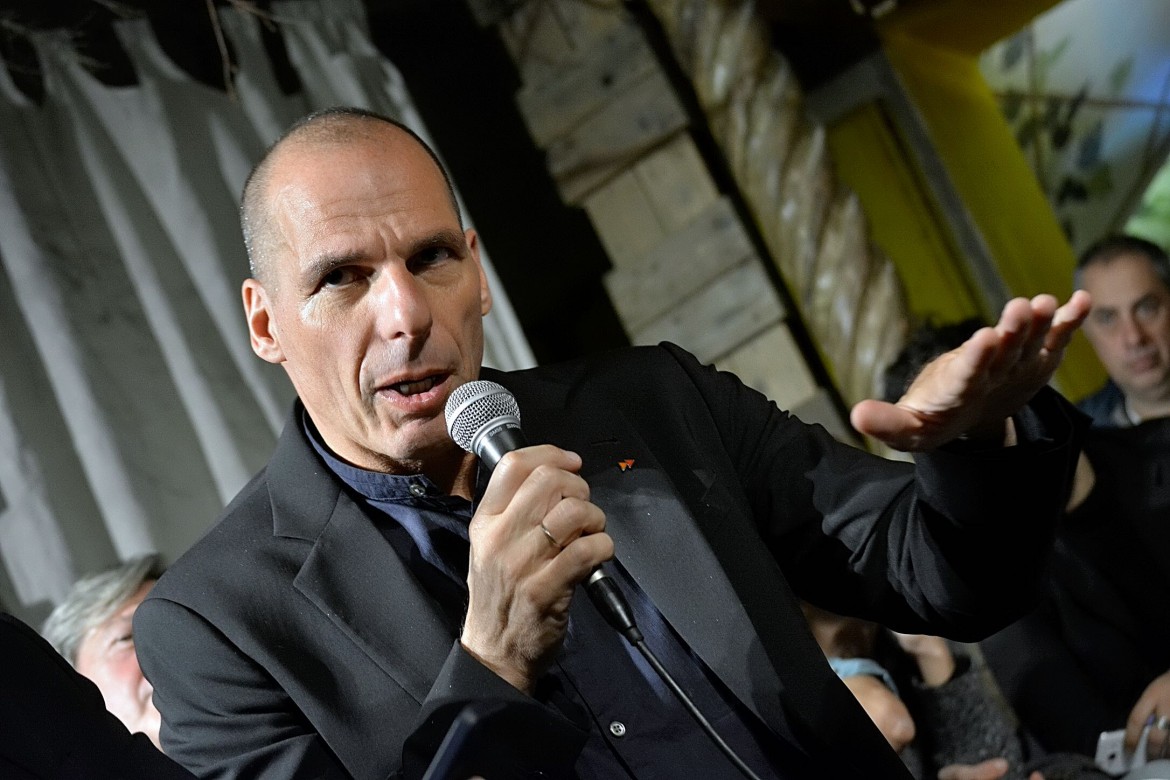Interview
Varoufakis wants a European New Deal and a constitution
Yanis Varoufakis’ DiEM25 is laying out its economic plan in Rome this week. The former Greek economic minister explained the proposal to il manifesto.

DiEM25 (Democracy in Europe Movement), the pan-European movement founded by former Greek economy minister Yanis Varoufakis a year ago in Berlin, has returned to Rome this week to deliver its economic program. That’s the first step to creating a progressive agenda ahead of the 2019 European elections. By 2025, DiEM wants to “democratize the European Union,” provided that it will still exist eight years from now.
In the meantime, DiEM is proposing a dialogue with the existing political forces to find a political form capable of giving rise to a “third space” beyond liberalism, sovereignty and populism “that want to recover a past that never existed and live rejecting the establishment,” says Italian co-founder Lorenzo Marsili. DiEM already counts 60,000 subscribers in Europe, 8,000 in Italy.
No one is expecting the Rome Declaration to be a turning point today for a Europe in agony. Will the future be a two-speed Europe backed by Italy, Spain, France and Germany but rejected by the Eastern bloc?
This solution saddens me. It has been on the table for a long time. It is a revival of the Juncker proposal on variable geometries within the E.U. If this is the future, it means that these politicians are already defeated and do not know where to take this continent. What we are celebrating is the destruction of the European Union and its business-as-usual approach that feeds populism, xenophobia and reactionism.
What does DiEM25 offer as a way out of this impasse?
A strategy in two stages: First, a European New Deal, with disruptive economic proposals, which can be enforced tomorrow morning, based on current treaties of which I am not proud at all. After having seriously addressed the problem of mass poverty and a chronic lack of investment, it would promote a pan-European constituent assembly to draw up a democratic constitution to replace all the treaties.
An attempt to create a European constitution was rejected in 2005 by referendums in France and Holland, particularly by the left, which challenged the neoliberal nature of that text. Would this potential new proposal be different? And if yes, how?
It will be different. The prospect is to build a European federalist republic that will involve both national parliaments as well as local governments, starting from the citizens and their cities. This will not be possible as long as Europe continues to disintegrate. It will not be possible to talk about such a prospect until everyone, from Greece to Germany itself, fears losing their jobs or can’t find one at all.
What does the “European New Deal” provide for?
An investment plan for ecological conversion to be financed by a new use of quantitative easing, which today is used by Draghi’s ECB to buy government and private bonds. It is based on a revival of the European Investment Bank. The ECB should buy its bonds to finance investment. It also insures basic necessities and the right to decent housing, financed by the profits of European central banks. The return of capital and finance are socialized.
DiEM25 is being configured as a trans-European political movement. What are your next steps?
We have issued an open invitation to parties, trade unions, movements and citizens, and it is not an empty gesture. Let’s debate in the next two months. On May 25, we will meet at the Volksbühne in Berlin, one year after our founding, to start an electoral political process for the upcoming European elections. The process will take different forms in each country to give the agenda we have discussed and shared a national declination.
From De Magistris to numerous representatives of associations and the left up to D’Alema, there are several entities interested in a critical and political discourse for refounding Europe. But the options they follow are not quite converging. What space will DiEM have?
De Magistris has joined our movement, and many members of the Italian left are interested. D’Alema has begun to make a very critical discourse on what Europe has become. It’s up to them to decide if they want to talk to us. Our document on the New Deal is not the Bible, but it sets the parameters for debate.
What are your goals?
To create an infrastructure that will allow the left, and political and broader cultural-political area, to start a different dialogue from what exists today. This is our job: to open the space to let this happen at the continental level.
How do you respond to those leftists who want to quit the euro and the European Union?
The European Union is a bad idea because of they way it is built. I have been saying that since 1998. Greece should not have joined. And I do not say this because I am anti-European, but because it was untenable. However, one must conduct a dynamic analysis of this reality, not a static one. The events are determined by a multiplicity of causes. Now it is not enough to say that leaving the union will bring us to a point where the European Union will never bring us. Our proposal is serious, modest and internationalist, based on a constructive disobedience. Unlike the left-wing exiters our plan does not provide the disintegration of the European Union, but a mechanism to manage the negative effects of a possible breakup of the eurozone. When the establishment puts a gun to its head, like it did to me when I was Greece’s finance minister, then you can cry foul. And you will pay the consequences. We have to share the political responsibility and stop accusing one another.
Originally published at https://ilmanifesto.it/disobbediente-e-costruttivo-il-terzo-spazio-di-varoufakis/ on 2017-03-25
